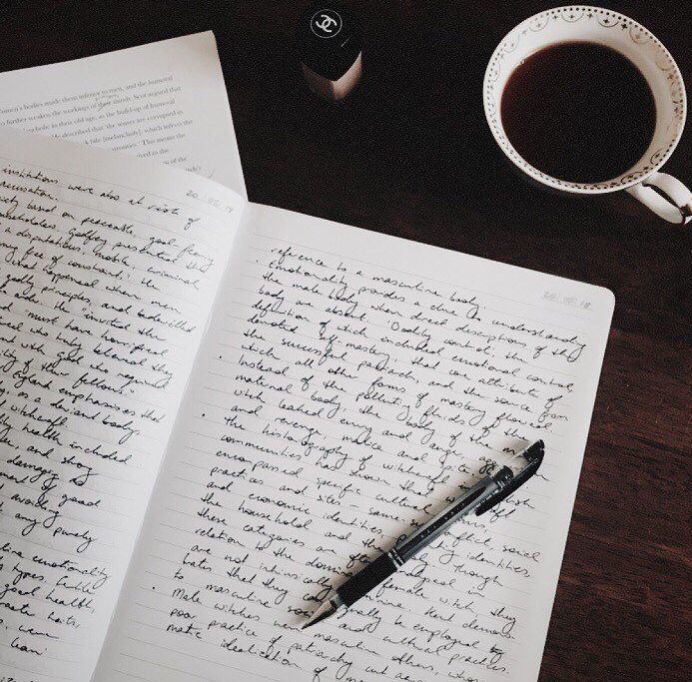Imagine that you have just had a long day at school. Maybe you had a fight with your friends. Maybe you were rejected by your crush. Or maybe you didn’t do a test as well as you wanted. You desperately need someone to talk to, but you feel like you have no one to turn to. It’s an unavoidable situation that almost everyone has found themselves in at some point in their life and it’s a situation where you become your own best friend. In this case, and in many other situations, keeping a journal is the best way to reassure yourself.

Personally, I have never been able to keep a journal consistently. I tried to sit down and write an account of my day, but during the more mundane ones I was just listing a series of events. For instance, “I woke up, I had breakfast, I went to school, I came home, I went to bed” is in line with what my journaling has become. Then I would stop for a while and then come back to it and the same thing would happen. I stopped again and the whole cycle repeated itself.
However, as I got older, my emotions became more complex. It’s obviously normal as I was hitting puberty and becoming a teenager, but it’s not exactly a fun time. I don’t like talking about my feelings with others because I feel like it’s overwhelming them so I’d rather listen to other people’s problems than talk about my own. Therefore, journaling became my favorite coping mechanism. There’s something about forcing yourself to put everything you’re feeling into extremely therapeutic words and it’s almost addictive. If I was having a bad day, writing about it would instantly make me feel better. I feel like a weight is lifted off my shoulders. Here’s exactly how journaling has helped me and how it could help you too:
Express your feelings without fear of being judged
First, it gives you a way to express their feelings without fear of being judged. Whenever you talk to a friend about your problems, sometimes there can be a sense of underlying anxiety– you might be nervous about them judging you or telling other people. However, writing down how you feel in your journal doesn’t come with that extra stress. Don’t forget to keep your diary private– it’s for you and your advantage only. That said, if you need professional help, logging should not be a substitute for this, but it can help you put your feelings into words and get well describe and express your emotions to other people.
Significantly improves your writing and communication skills
Second, it dramatically improves your writing and communication skills. When I started taking time out from time to time to clearly communicate the deep and complex emotion I was feeling, it really increased both my passion and Talent for writing. If you’re struggling with your English course and don’t know how to improve your skills, keeping a journal is one of the best ways to help.
Organize your thoughts
Moreover, it leads us to organize our thoughts. What’s going on in our heads can sometimes be so complex that even understanding it can be a challenge. However, when we keep a diary, we must convert these emotions into words it can be understood. It’s no secret that our feelings can be metaphorically strong and can overwhelm us. Therefore, when we force ourselves to to understand these thoughts to the point where we can clearly write about it without it sounding like gibberish, it reassures you and gives you the ever important mental peace and tranquility which we all yearn for.
It’s versatile
Another thing I love about journaling is how versatile it is: you can use it for several different endings. You can focus on coming and set your goals or focus on past and reflect on your day. You can even focus on present and express how you feel as you write it. Something I found really helpful was writing letters to the people I felt overwhelming emotion towards – be it love, anger or disappointment. I’m not the kind of person who confronts people about situations because I tend to avoid conflict, but when I write “letters” to them in my journal (obviously I won’t send them!), it makes me feel much better.

Gives you something to look back on
In addition to this, logging gives you something to watch in the future. This stores your memories in a way that pictures cannot. Most of the time, the images on your phone don’t communicate exactly how you feel. These are the emotions we want to remember; not events. Also, it’s often the days when nothing special is happening that you’re happiest: it might be a normal school day, but you might be in a good mood for whatever reason. However, you’re less likely to take a picture on your phone of something you do all the time, but you’ll likely write down how you feel. In the future, when you have a bad day or just want to reminisce, you can go back to these accounts and remember what happened on that nice day. On the other side of the spectrum, you can also look back on your bad days and realize how far you’ve come. This thought in itself will motivate you to persevere no matter what difficulties you face.
Everyone can do it
Finally, something to remember about logging is that Everyone can do it! All you need is something to write about and something to write with. Some people prefer to keep a journal in fancy notebookssome people like to write about a piece of scrap paper, and others would rather just write in the notes feature on their smartphone. It’s entirely up to you that you do it for yourself.






